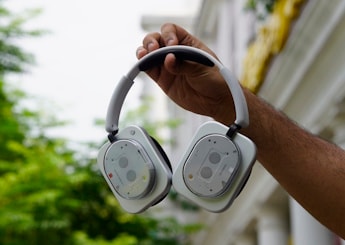- Home
- Internet
- Internet News
- This Indian Startup Has ‘Killed All Work Related Chats Post 6pm and Holidays’: Founder Explains Why
This Indian Startup Has ‘Killed All Work-Related Chats Post 6pm and Holidays’: Founder Explains Why
Nithin Kamath, the founder of financial services company Zerodha, explained the move on Twitter.

Photo Credit: Facebook/ Nithin Kamath
Zerodha CEO Nithin Kamath has decided to put an end to work-related conversations after office hours
Zerodha, a Bengaluru-based financial services company, has officially put a stop to all work-related charts after 6pm everyday and throughout entire day on holidays. Several companies and employers have over the past years acknowledged that working for long hours may take a huge toll on their employees' mental health and productivity. And, therefore, they have also taken steps to address the matter in their own ways. While some have prioritised the mental health of their employees, others have taken measures to ensure nobody has to work for more than their duty hours. Zerodha founder and CEO Nithin Kamath, too, has taken note of the issue and decided to put an end to work-related conversations after office hours.
Tweeting about the same on May 6, Kamath wrote, “At Zerodha, we have just killed all work-related chats post 6pm and holidays. Also, trying to get as many conversations to be asynchronous, moving them from chat to our internal instance of @discourse.” He ended the tweet stating that he was curious if this would help reduce the feeling of burnout.
At Zerodha, we have just killed all work-related chats post 6 pm & holidays. Also trying to get as many conversations to be asynchronous, moving them from chat to our internal instance of @discourse. Curious to see if this helps reduce the feeling of burnt out & brain fried. 1/2
— Nithin Kamath (@Nithin0dha) May 6, 2021
In another tweet, referring to a discussion on startup accelerator platform Y Combinator, Kamath said, “Apparently, multitasking hurts performance and may even damage the brain. Being part of multiple discussions on different topics in different chat groups simultaneously has gone up exponentially post WFH.”
Apparently, multitasking hurts performance and may even damage the brain (check the link below).
— Nithin Kamath (@Nithin0dha) May 6, 2021
Being part of multiple discussions on different topics in different chat groups simultaneously (Multitasking) has gone up exponentially post WFH.https://t.co/iZxIjg7qsR
2/2
User Shakaijin wrote on Y Combinator that he had noticed the impact of multitasking on himself and now he was actively taking steps to avoid it. The user initially thought multitasking would increase his efficiency by filling the gaps of downtime in certain tasks, “but it soon turned me into a person incapable of focusing on anything deeply,” Shakaijin said.
The user added, “One day, I noticed that I was unable to read a book the same way I did as a child (cover to cover in one sitting for example), and it shocked me. I now have a rule that I do one thing only, and start other tasks only when the previous task has been finished. This applies to both productive work (learning, programming etc.) and entertainment (YouTube, books etc.).”
Another user, Hobberscotch, an engineer by profession, talked about facing a similar issue at work. "I am a data engineer and while writing new scripts to pull data, the testing process sometimes involves waiting 15 mins to an hour (or more) for all the data to pull. Sometimes I'll start a new task in the middle of the pull or, if I expect it'll only be a few minutes, I'll flip out my phone. But once the data is finished pulling, I'll then need to jump back and validate it one last time," the user wrote.
Sarath (@sarat), a Twitter user who is an engineer by profession, said they had been following similar protocols since 2019. “Less slack, less meetings, long form of commutation (basecamp). Uses zoom/calls as appropriate — faster than chatting. Choose core hours, and ensure overlaps," the user wrote.
We have been following similar protocols since 2019.
— Sarath 👨💻🧘♂️ (@sarat) May 6, 2021
Less Slack, less meetings, long form of commutation (basecamp). Uses zoom/calls as appropriate - faster than chatting. Choose core hours, and ensure overlaps.
"It's a fantastic move. It's this thinking that makes you a unicorn. Everyone's too fixated with long hours and constantly being engaged in work forgetting the long-term toll it takes for the short-term results. Just like investment, this will help in the long term," wrote another user, Kushal (@Kushal_sh).
It's a fantastic move...it's this thinking that makes you'll a unicorn..everyone's too fixated with long hrs and constantly being engaged in work forgetting the long term toll it takes for the short term results... Just like investment, this will help in the long term
— Kushal (@Kushal_sh) May 6, 2021
Here are some more reactions to Kamath's decision:
Nithin, you guys are setting the standard for reinventing workspaces for a (hopefully imminent) post-covid world. Keep up the good work, hope more companies in India follow suit!
— Useful Idiot (@Useful_idjit) May 6, 2021
Also meetings should be held only if absolutely necessary. Keep a max time limit (unless its one of those brainstorming sessions) for meetings and clearly outlining the end goal will help.
— Vijeet Kittoor (@Vijeetk) May 6, 2021
Much needed working change required. And if communication is Async then 6pm deadline also doesn't matter....ppl may respond whenever they feel most productive while working
— Ashish Rai (@ashishrai188) May 6, 2021
You are a trendsetter . Indeed !
— Capt. Cibi George (@cibigeorge) May 6, 2021
This is a great. Having a slightly wider window generally helps keep it more 'practical' though. I guess you have refinement is mind anyways. Nice lead.
— axayg (@axayg) May 7, 2021
Get your daily dose of tech news, reviews, and insights, in under 80 characters on Gadgets 360 Turbo. Connect with fellow tech lovers on our Forum. Follow us on X, Facebook, WhatsApp, Threads and Google News for instant updates. Catch all the action on our YouTube channel.
Related Stories
- Samsung Galaxy Unpacked 2026
- iPhone 17 Pro Max
- ChatGPT
- iOS 26
- Laptop Under 50000
- Smartwatch Under 10000
- Apple Vision Pro
- Oneplus 12
- OnePlus Nord CE 3 Lite 5G
- iPhone 13
- Xiaomi 14 Pro
- Oppo Find N3
- Tecno Spark Go (2023)
- Realme V30
- Best Phones Under 25000
- Samsung Galaxy S24 Series
- Cryptocurrency
- iQoo 12
- Samsung Galaxy S24 Ultra
- Giottus
- Samsung Galaxy Z Flip 5
- Apple 'Scary Fast'
- Housefull 5
- GoPro Hero 12 Black Review
- Invincible Season 2
- JioGlass
- HD Ready TV
- Latest Mobile Phones
- Compare Phones
- Realme P4 Lite
- Vivo V70
- Vivo V70 Elite
- Google Pixel 10a
- Tecno Camon 50
- Tecno Camon 50 Pro
- Lava Bold N2
- Vivo V60 Lite 4G
- LG Gram 14 (2026)
- Asus Vivobook 16 (M1605NAQ)
- Infinix Xpad 30E
- Brave Ark 2-in-1
- Amazfit T-Rex Ultra 2
- boAt Chrome Iris
- Xiaomi QLED TV X Pro 75
- Haier H5E Series
- Asus ROG Ally
- Nintendo Switch Lite
- Haier 1.6 Ton 5 Star Inverter Split AC (HSU19G-MZAID5BN-INV)
- Haier 1.6 Ton 5 Star Inverter Split AC (HSU19G-MZAIM5BN-INV)
-
 Apple Said to Be Developing Visual Intelligence Models for AI Pendant, Other Upcoming Wearables
Apple Said to Be Developing Visual Intelligence Models for AI Pendant, Other Upcoming Wearables
-
 Nothing Headphone (a) Reportedly Listed on IMDA Certification Database Hinting at Imminent Global Launch
Nothing Headphone (a) Reportedly Listed on IMDA Certification Database Hinting at Imminent Global Launch
-
 Samsung Galaxy S26 Ultra Seen Alongside iPhone 17 Pro Max as YouTuber Purchases Handset Ahead of Galaxy Unpacked
Samsung Galaxy S26 Ultra Seen Alongside iPhone 17 Pro Max as YouTuber Purchases Handset Ahead of Galaxy Unpacked
-
 LG Gram 14 (2026) With Up to AMD Ryzen AI 7 450 Processor, 72Wh Battery Launched: Price, Features
LG Gram 14 (2026) With Up to AMD Ryzen AI 7 450 Processor, 72Wh Battery Launched: Price, Features





![[Partner Content] OPPO Reno15 Series: AI Portrait Camera, Popout and First Compact Reno](https://www.gadgets360.com/static/mobile/images/spacer.png)





